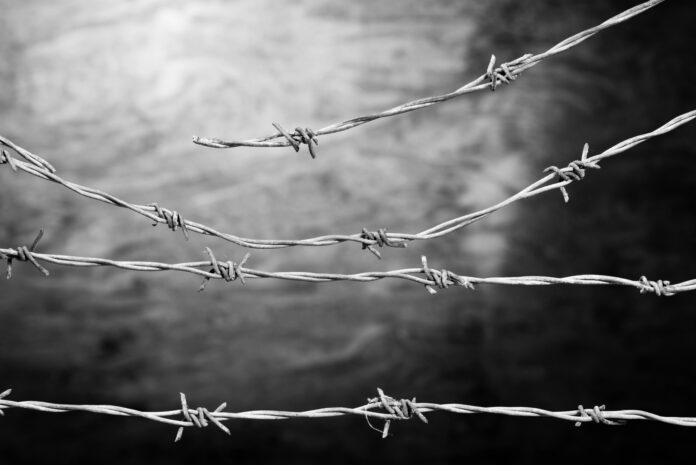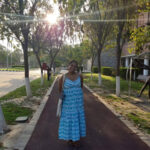Me: “What will be the cost of this?”
Them: “Around 7000 for 6 sessions.”
Me: “Will get back to you.” (Knowing I will not)
In the middle of writing this article, I got an offer to improve my mental health and well-being in this particular amount given above. I thought to start this article with this insight of mine, as a Dalit woman now seeking mental health facilities in the Brahmin, Capitalist Patriarchy.
Recently, I was talking with my friends about how people, especially youth, are depressed and are struggling to attain good mental health. From this, the conversation also went to how their marginalization is also one of the major reasons for poor mental health or a reason for not getting facilities for the same.
I remembered how, when I was a child, I had no friends, and the girls of my colony used to ignore me. One fine day, when I was able to gather the courage to have conversations with them, they took me to their home.
It was the first time I went to somebody’s house, and they neither offered me water nor allowed me to sit on their sofa. We went near the almirah. They opened the almirah and said, ‘yeh dekh, ache kapde, tera baap ye kharid nahin sakta isliye tu hamari jaisi nahin hai na hi tu hamari dost ho sakti thi’ (Look at this, look at these nice clothes, your father can’t buy clothes like these and that’s why you can’t be our friend).
That day, I knew they closed the door of friendship.
I wonder how it has impacted my life and my decisions, be it cutting my hair to look pretty like them, trying hard to get friends with the ‘coolest people of college’, enabling bullying of myself, and not raising my voice. My school life had these light jokes daily, jokes on my unclean uniform, which my Maa used to handwash daily since I had only one pair. I never figured out what was “unclean” about my attire, or what they meant by ‘mazdoor wale per’ (a worker’s feet). With time, I lost my confidence.
Does this have nothing to do with my caste?
“Caste, what caste?” The Invisibility of Caste in Mental Health.
Manisha Mashaal, an anti-caste activist also the founder of the Swabhiman Society, talked about mental health, educational institutions, and caste-based and sexual violence. The news of suicides in educational institutions is neither taken seriously from the lens of mental health, nor marginalization.
Although studies on global mental health have acknowledged the issue of student suicides in India as a serious matter, most studies have not performed caste analyses (Komanapalli & Rao, 2020).
The field of Global Mental Health rarely considers caste as a major sociological factor impacting the physical and mental health of people from South Asian countries, including India.
A review by Whitley (2015) found that mental health advocates have avoided confronting “uncomfortable truths” in developing countries, such as the ‘institutionalized inequality’ of the Indian caste system. As such, the dearth of attention focused on the impact of factors such as caste leads to a lack of nuance in ‘expert’ understandings of mental health in India.
For instance, the lack of sufficient counselors and low numbers of people seeking mental health services are some ‘barriers’ frequently discussed in the context of Indian mental health, but the bias that oppressor-caste counselors have when engaging with service users from marginalized caste backgrounds is a topic often left out of the discussion, as is caste backgrounds of individuals who can access the required training to become registered counselors.
The Unrelenting Reality of Caste
In Dalits & Mental Health: Why We’re Having the Wrong Conversation Aliza Noor Mashal talked, about her experience of facing discrimination in school and college, which reminds me of how my school life had a lot of caste-based discriminatory experiences but my consciousness back then was limited.
In college, I remembered the first day where I misheard ‘Convent’ as ‘Government’. In the excitement of finally meeting ‘government school ka bacha’ (student from a public school), I excitedly jumped but was stopped and corrected. Big cars, luxurious clothes, bags, angrezi bhasha (English language), bahar gaaon ka tours, and trips were the topics of discussion on the first day of college. I remembered the feeling of just being invisible.
For months, I had no courage, hope, or desire to go to college. There were sudden urges to cry my heart out, sometimes I was unable to breathe during discussions around me, being called a quota product (“tere pass toh quota hai”) even by people I was close to, who only acknowledged the “benefits” of quota while being oblivious to the lived reality of caste. I remember the feeling of questioning myself when people in college asked me to dress ache se (“dress nicely”) for events.
“Quota product” – I still face this comment and feeling of constant humiliations. I now know that all of this was not normal or okay, and that I had real mental health issues that were just not acknowledged by the society around me.
Reclaiming Caste: The Hidden Politics of Self-Care and Therapy
In my Master’s, I started learning about identities and issues from an intersectional lens. It was also the first time I recognized the importance of self-identity, and relooked at my life experiences through the lens of caste. My identity has always been with me, reasons for things to happen to me — things I got, and things I lost.
Even if I was ignorant about my identity, society knew how to treat me.
With time, I also understood that our body, which has its politics, also keeps memories of struggle, that for marginalized people, their trauma is all over their body. Dalit trauma has been part of marginalized people’s lives; they are forced to live in “perpetual survival mode” (Singh, 2020).
Their intergenerational trauma starts with the “first generation that is directly impacted by threatening circumstances and suffers post-traumatic stress, passed on to the future generations through secondary traumatization, experienced in the form of emotional dysregulation, chronic anxiety, and high-stress levels, intra-community violence, unhealthy attachment styles, and higher levels of physical and mental illnesses.”
In the safest spaces and among the safest people, the sudden shock my body feels when someone puts their hands on my shoulder or back is an absolute example of trauma that is specific to certain identities.
When I see myself now, having awareness about my socio-political and economic location, despite the need and want of therapy, it is difficult to afford the same. In the field where conversations around patriarchy, gender, intersectionality happen daily, the fact is that on a personal level, mental health is not seen from an intersectional lens. I remembered conversations on self-care and people around me discussing how, when they feel depressed, they go to a movie, theatre, coffee shop, or shopping.
I have wondered a few things about the people around me. They have time to reflect on their mental health and well-being.
I have felt sad, lonely, and hopeless. The constant guilt of being unproductive remained.
I can’t afford to feel this way – I have responsibilities to my family. The ideas of self-care and well-being seem capitalist, ignorant of the fact that affordability and sustainability need to be important when we think of well-being, especially for marginalised people.
In the article Looking at Mental Health through Caste by Aatika Singh and Shubhkaramdeep Singh, it is highlighted how historically oppressed communities cannot afford to check on their mental health and well-being, even “the most-educated and well-placed Dalits don’t have access to health care and therapy that is rooted in our socio-political realities.”
I recall how I hesitated to go for therapy, my usual reply of what change it would bring, and that my life would be the same, and so would my family and our problems. I never had an explanation of what ‘our problems’ meant. When I thought about getting therapy – the cost, surnames, accessibility etc. led to the decision of not going for it.
Now I feel I have some idea of the same. Divya Kandukuri, who runs Blue Dawn, a mental health support and facilitation group targeting the intergenerational trauma of marginalised communities, asks ‘How many understand the intersection of caste and mental health?”. I think very few.
Mental health is a topic with a lot of stereotypes and stigma; additionally, Dalit communities have also been stigmatized by society for centuries. Now, these two stigmatized topics need a lot of attention, and thus a lot of action. For example, at both the national and the global level, experts tackling student suicides at educational institutes need to address caste issues.
Looking back to my life now I see these identities of mine as what they were, for example, when I used to get punished for not getting nutritious food to school but namak ka paratha (salted flatbread). This had a lifelong impact which was never acknowledged as a lifelong trauma; it led to my decision of not taking tiffin to places, feeling shame while chewing and so on. The structures that taught me to be a certain way and affected my mental health are never taken into consideration.
It just reminds me of Rohith Vemula’s last words — “the value of a man was reduced to his immediate identity.” The sad part is that society and its structure do not want to talk about this; mental health is a marginalized topic in marginalized communities.
The Global Mental Health field must consider these things to advocate for mental health for all marginalized-caste people. Recognizing that a specific community has had a lot of intergenerational trauma, the current therapeutic facilities must speak to the needs of people whose needs have been ignored for centuries. Health issues are not specific to a certain caste or class; hence, affordability also needs to be taken into account.
Seeking mental health facilities should not be a luxury but a right that is needed as per our constitution. We each have a Right to a dignified, affirmative, and inclusive life.
References
- Dalits & Mental Health: Why We’re Having the Wrong Conversation
- Caste, Exclusion and Mental Health | Dalit History
- The Intersection of Caste and Mental Health
- Looking at mental health through Caste – The Life of Science
- When Mental Health Collides With Caste Identity
- Dalit Trauma: Why It Is Important To Address Its Intergenerational Aspect | Feminism in India
- Global Mental Health: concepts, conflicts, and controversies
- The mental health impact of caste and structural inequalities in higher education in India – Vignapana Komanapalli, Deepa Rao, 2021
Rinku Kumari
I am Rinku, a Dalit-Dusadh woman, an Intersectional Feminist, a Storyteller, Artist, Researcher, and Writer. I am a first-generation learner in my community. I graduated in Political Science from the University of Delhi and have a Master’s in Women’s Studies from the Tata Institute of Social Sciences, Mumbai Campus. My area of interest and intervention lies in Gender, Anti-Caste work, Tribal and indigenous community rights, sexual reproductive health rights, Justice, Adolescent and Youth leadership, Mental Health, Well-Being, and Trauma-informed and sensitive approaches to work. Since 2017, I have been working in the communities of Delhi, Bihar, and Jharkhand on various feminist issues.

